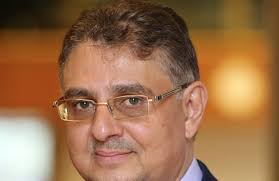Syria TV sat with Badr Jamous, the head of the Syrian Negotiating Commission to discuss the motivations behind the recent amendments to the internal regulations, including the extension of the presidency term to two years.
Here are a few questions extracted from the interview
What motivated the changes to the internal regulations, including extending the presidency term to two years? How do you respond to accusations that the changes aimed to ensure continuity in the presidency?
The Negotiating Body has been discussing the need to amend its internal regulations for about three months to make them more advanced and adaptable to new developments. The original regulations, established nine years ago, were designed to be flexible. The recent amendments have practical, administrative, and political justifications.
Rapid changes in leadership hindered our ability to build strategic relations with countries. In any democratic system, a one-year term for a political or technical position is impractical. We amended several articles, including developing administrative work mechanisms, which were not keeping pace with the Authority’s growing responsibilities. We added specializations and tasks to the Authority’s offices and committees, including a legal office, and revised membership conditions. Extending the leadership term to two years allows for sufficient time to implement plans without interruption.
These measures, including the amendments, are administrative procedures designed to benefit the Authority as a functional entity focused on the political negotiation process. They do not serve individual interests and are necessary to keep pace with logical developments.
What is the current status of the Syrian Constitutional Committee’s work?
The situation reflects the broader political process. The Syrian regime still refuses to participate, largely due to Russian demands that the committee’s meetings not be held in Geneva, contradicting international resolutions. The regime has proposed unacceptable alternatives, and international envoy Geir Pedersen has suggested several options. However, the regime has rejected these proposals. The constitutional process should be a purely Syrian process, aiming to establish a democratic constitution for Syria, facilitating political change, stability, and security.
What options does the negotiating body have if Turkish normalization with the regime leads to unexpected violations?
We prioritize the interests of Syrians and their legitimate demands for freedom and dignity. We do not abandon the demand for political change, which is the only solution to ensuring stability and security in Syria. Turkey has supported the Syrian people and the opposition, endorsing their demands. Despite media speculation, I believe Turkey will not engage in a free normalization process, as the Syrian regime cannot fulfill its promises. We maintain constant communication with Turkish officials and will wait to see how the situation develops before making decisions.
This article was translated and edited by The Syrian Observer. The Syrian Observer has not verified the content of this story. Responsibility for the information and views set out in this article lies entirely with the author.


